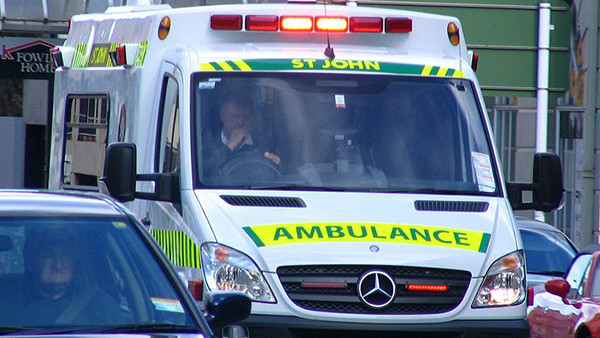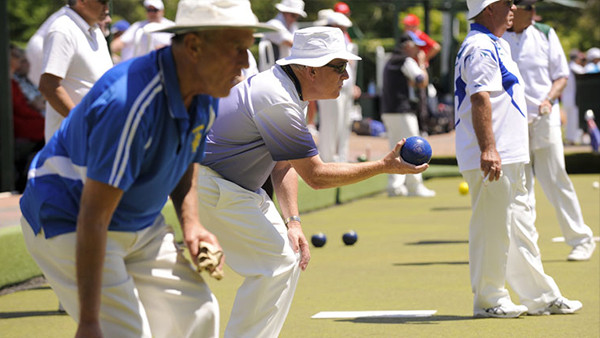Interested in coming to New Zealand?
Sign up to receive relevant job opportunities from New Zealand employers and practical advice on how to make your move to New Zealand a reality.
There are around 5,500 general practitioners (GPs) located in almost every city, town and suburb. Most work in groups called a practice, operating from a medical centre.
You need to enrol yourself and your family with a general practice in order to get cheaper, subsidised charges when you see a GP. It is free to enrol. If you do not enrol, you will pay a lot more to see a GP.
Remember to check the fees the practice charges before you enrol. You can also request a male or female GP when you enrol. You will be able to take someone with you when you visit them.
To find a GP:
• Search for your local GP on Healthpoint. It will tell you if the GP is accepting enrolments.
• look in the White Pages telephone directory. Search online for GPs in your region or look in the front pages of your local hard-copy under ‘Registered Medical Practitioners and Medical Centres'.
Not all GPs in a practice will be taking new patients, so you may need to look around. Practices usually give priority to people who live or work in their local area. You can take someone with you for support when you visit your GP.
To find out more about enrolling with a practice and finding a GP, visit the Ministry of Health website. It has advice on how to choose a GP and information on fees.
Get a copy of your medical records from your home country so you can give them to your New Zealand GP.
If you need emergency medical help, call 111.
(Calls to 111 are free. You can call this number on a mobile phone even if the phone is out of credit.)
You can also visit the emergency department of your nearest hospital's emergency department. They can assess and treat patients who have serious injuries or illnesses.
If it is not a medical emergency, you should arrange to see a family doctor, known here as a general practitioner (GP).
A GP is a fully trained medical doctor who can give you medical advice and refer you for further tests or specialist treatment if needed. Treatment may be either in the public healthcare system (which is subsidised or free) or through private providers (user pays).
Finding a GP is one of the first things you should do once you have decided where you are going to live in New Zealand.
Depending on what your healthcare need is, your GP’s office may suggest they make an appointment for with their primary nurse.
If you need medication, you can get it from a pharmacy, also known in New Zealand as a chemist shop. Every city and major town has at least one.
Chemists can sell you 'over the counter' drugs, like painkillers and some medicines for colds and flu. For other medicines, you need to get a prescription from a GP first.
If you do not have a family GP, or you are not sure if you should see one, you can phone Healthline. Healthline is a free telephone health advice service that lets you talk to a registered nurse to:
• find out if you should see a GP
• get general health advice
• find the nearest GP or chemist.
You can call Healthline on 0800 611 116, any day, any time (24/7). If you need language support, ask for an interpreter.
For more information about health care for yourself or your family (or ‘whanau’) visit the Ministry of Health website.
Healthline | Ministry of Health
You can find full information on the New Zealand healthcare system on the Your Local Doctor website below. It includes factsheets in many languages and a video presented in English, Hindi and Mandarin.
The Health Navigator website has reliable and trustworthy New Zealand health information and self-care resources.
NZ Health and Disability System videos | Your Local Doctor
The New Zealand health system | Your Local Doctor
If you are eligible, you can get free or subsidised health, maternity and disability services in New Zealand. Check if there are going to be charges when you make an appointment.
Most GPs are open Monday to Friday from 9am to 5pm. If you have to see a doctor suddenly any other time, you can use the after-hours service. If you phone your GP, you should hear a phone message telling you where to go.
You may need to go to a different practice or an 'after-hours clinic'. Remember, if you are not enrolled with them you will pay a higher, unsubsidised price.
Cities and most larger towns also have after hours pharmacies.
If you have questions or you do not know what to do or who to see, call Healthline on 0800 611 116.
Enrolling with your local doctor
GPs and accident & emergency medical care | Healthpoint
Visiting a doctor or nurse | Ministry of Health
In a medical emergency needing urgent attention, call for an ambulance. In New Zealand the number to dial is 111.
111 calls are free. You can call this number on a mobile phone even if the phone is out of credit.
If the situation needs an ambulance, there may be a charge. See the St Johns Ambulance website for more information.
However, in the Wellington area, Wellington Free Ambulance services are free.
If it is urgent, but you or the person does not need immediate medical attention, you can go to the 24 hour emergency department at your local hospital (sometimes called Accident and Emergency or A&E).
When to visit an emergency department | Ministry of Health
Examples of emergencies | New Zealand Police
Ambulance charges | St Johns Ambulance

Most costs of injuries from accidents are covered by our Accident Compensation Corporation (ACC) scheme. This covers everyone in New Zealand, including non-residents and visitors.
If you are injured in an accident, your GP or health provider will help you make a claim for ACC cover.
New Zealand has around 40 public hospitals spread across the country in cities and larger towns. They provide care for emergencies, serious health problems, accidents and illnesses. Their services include emergency departments and medical, surgical and maternity services. You can search for public hospitals on the Ministry of Health website.
Most hospital treatment is free for those eligible for healthcare services. There are some exceptions, like some kinds of cosmetic surgery.
Nobody can be refused emergency care if they are unable to pay. But if you are not a New Zealand resident, you may have to pay for some services.
Waiting times for surgery vary from hospital to hospital. If your case is urgent, you will be put on an urgent waiting list.
As well as the public hospitals, there are many private hospitals around New Zealand that you can access if you have healthcare insurance.
Find a public hospital in your area | Ministry of Health
If you are not eligible for healthcare services, we strongly recommend you take out a travel medical insurance policy.
Children get free basic care for their teeth until they are 18 under the Talk Teeth programme. Basic dental care through school dental clinics is free while children are at school.
Otherwise, dentists are not part of the free public healthcare system. The Ministry of Health has information about dental care for families in New Zealand.
Dental care is provided by oral health care practitioners, such as dentists and dental hygienists, in private practices. Fees can vary widely, so remember to ask about them when you are looking for a dentist.
Find a dentist in your area | Dental Council
Your child's dental care | Ministry of Health
If you need to see a medical specialist, you need a referral from your GP first.
Specialists work in both the public and private healthcare systems. You can only choose a particular specialist if you go through New Zealand’s private healthcare system.
The privately-operated website Healthpoint has useful information about specialist medical care in New Zealand, the treatments they offer and what you need to get referred.
Healthpoint lists private hospitals and specialists by region and specialty.
Private hospitals and specialists | Healthpoint
Services for pregnant women (maternity services) are arranged and coordinated by a Lead Maternity Carer (LMC) - usually a midwife.
The Ministry of Health and HealthEd have information about:
Service and support during pregnancy | Ministry of Health
From birth to 5 years, all children in New Zealand qualify for a free health service called Well Child Tamariki Ora. It gives children a range of health checks and provides support and advice for new parents. Your Lead Maternity Carer (usually your midwife) will get you started on this programme if you are a new parent, or you can go to the website.
One of the providers of the Well Child service is the Plunket Society. Plunket provides a wide range of free support services for children under 5 years and their parents. Its services include home and clinic visits, mobile clinics and PlunketLine.
All children under 14 years can get some free medical care. This includes:
If your child is 15 years or under and has eyesight problems, you may be able to get a spectacle subsidy for eye examinations and glasses.
Well Child Tamiriki Ora service | Ministry of Health
Zero fees for under 14s | Ministry of Health
Chlidren's spectacle subsidy | Ministry of Health
New Zealand offers a wide range of services to help the elderly in New Zealand. Services include home care, financial support, social support, rest homes and retirement villages.
For full details, call Seniorline 0800 725 463 or visit their website.
Support for older people | Seniorline

Mental health services are provided in each region. Generally, you need to start with your GP to get a referral but there are also emergency services.
There are several phone services that you can contact directly for help with mental health issues. The main number to call is 1737. Details of other helplines are on the Mental Health Foundation website.
The Ministry of Health website has more information on what to do in a mental health emergency and support services that are available.
Mental health services | Ministry of Health
Mental health helplines | Mental Health Foundation
The Ministry of Health has programmes that help prevent illness. They range from help with addictions like gambling, alcohol or smoking, to immunisation programmes and advice about keeping active.
Some organisations, like Asian Family Services, provide multilingual wellness support to migrants.
Healthy living | Ministry of Health
Gambling support | Asian Family Services
Quitline is a service funded by the Ministry of Health to help people stop smoking. it offers a support phone line and online and text support. If you are eligible for free healthcare services, you can also access free nicotine replacement products through your GP.
Quitline 0800 778 778New Zealand has a range of alternative health practitioners. The term ‘complementary and alternative medicine’ is used for medical products or services that are not part of standard medical care, for example acupuncture.
These services are not subsidised by the government. But the costs of acupuncture and osteopathy for injuries caused by an accident are covered by ACC. For more information about ACC, see our ‘Paying for healthcare services’ page.
Alternative health therapies | Te Ara Encyclopaedia of NZ
Sign up to receive relevant job opportunities from New Zealand employers and practical advice on how to make your move to New Zealand a reality.